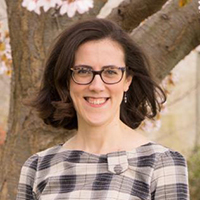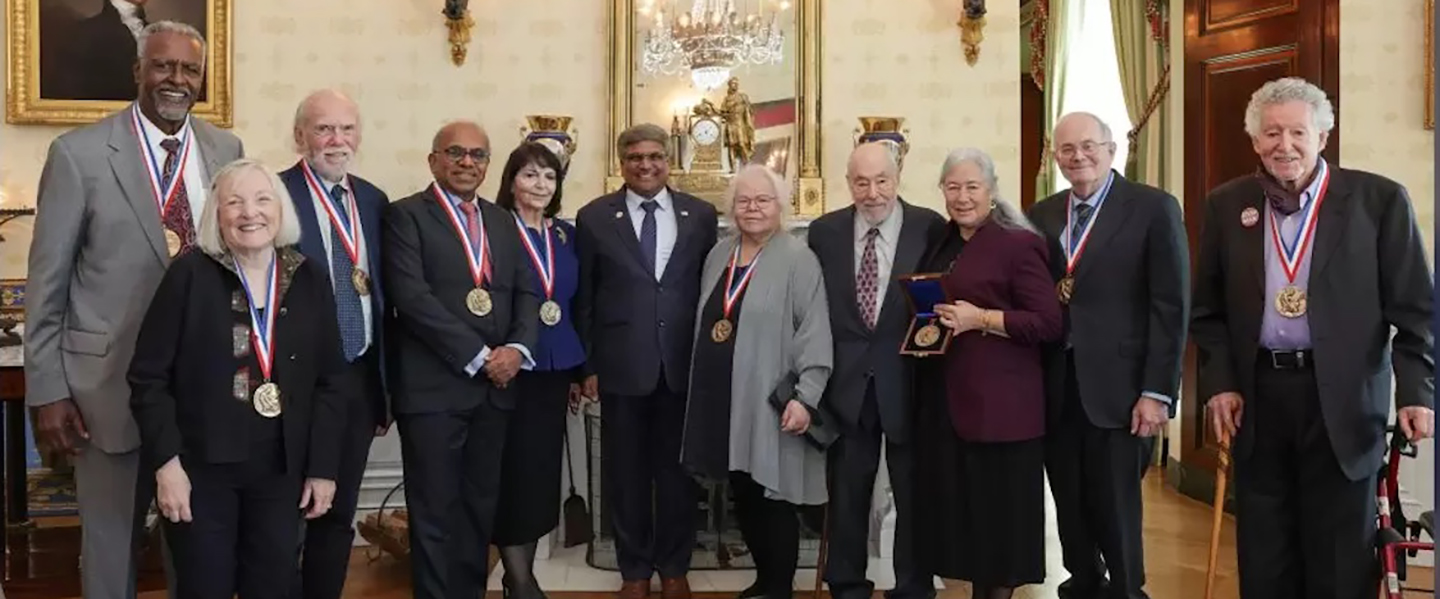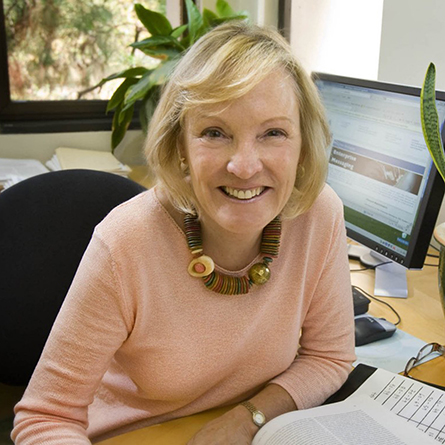
President Biden awards Shelley Taylor ’68 the National Medal of Science
Shelley Taylor ’68 received the National Medal of Science, the country’s highest scientific honor, during a ceremony at the White House on Tuesday, Oct. 24. This is the first time the award has been given since 2016. Taylor was among 21 people awarded the National Medal of Science or the National Medal of Technology and Innovation during the nearly 40-minute event.
The White House cited Taylor’s groundbreaking research on mental health and the power of human connection. “Her work showed that optimism, self-esteem and strong relationships improve the health of people with cancer, diabetes and other diseases, helping establish the fields of social cognition, health psychology and social neuroscience and increasing our nation’s wellbeing,” the announcer said during the event.
At Connecticut College, Taylor initially planned to major in history until her professor in her “Psychology 101” course recognized her talent and encouraged her to major in psychology instead.
Her early projects examined the behavior and attitudes of women who chose career paths instead of the more traditional family roles of the 1960s. Interest in the psychological effects on women caused by cultural and medical factors continued to shape her work for the next 50 years.
Taylor’s research has yielded several groundbreaking theories and developments in psychology, including the role of cognitive bias in social situations; the effect of stress on health and the buffering effect of social factors on that stress; the role that women’s thoughts and beliefs played on their adjustment to breast cancer; and the tend-and-befriend behavioral model, which is correlated with the well-known fight-or-flight response and proposes that women under threat often respond by first nurturing their loved ones and then seeking community support.
After graduating Phi Beta Kappa from Conn in 1968, Taylor earned her Ph.D. from Yale in 1972 and accepted her first teaching job at Harvard, where she pushed for a health psychology program. After being passed up for tenure, she moved in 1979 to California to develop the new field of health psychology at UCLA, where she has been a faculty member for 44 years, cementing her legacy in the field as a distinguished research professor.
In addition to the National Medal of Science, Taylor has been honored with the Lifetime Achievement Award and the Distinguished Scientific Contribution Award from the American Psychological Association, as well as the prestigious William James Fellow Award from the Association of Psychological Science. She was inducted into the U.S. National Academy of Sciences in 2009 and the American Philosophical Society in 2018. She has written more than 350 works, including journal articles, chapters and books.
Established by Congress in 1959 and administered by the U.S. National Science Foundation, the National Medal of Science is bestowed by the President of the United States on individuals deserving of special recognition for their outstanding contributions in biology, computer sciences, education sciences, engineering, geosciences, mathematical and physical sciences, and social, behavioral and economic sciences, in service to the nation, according to a White House press release.


